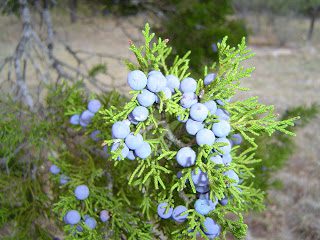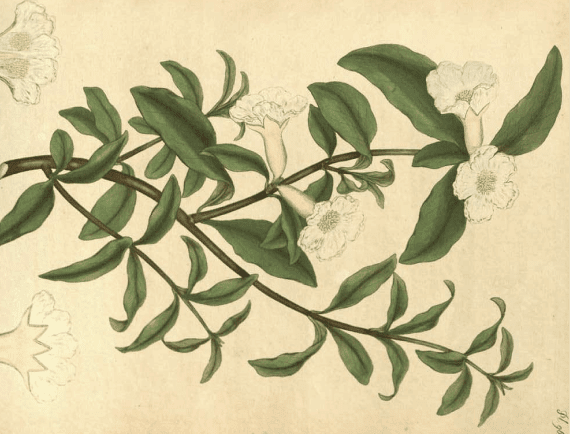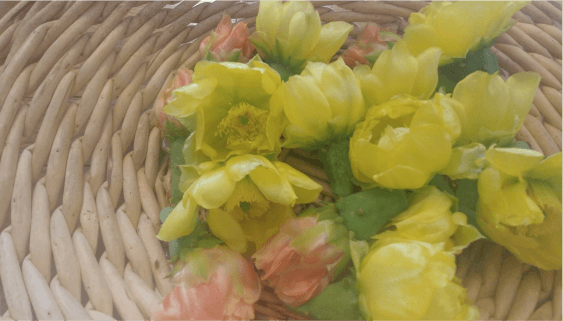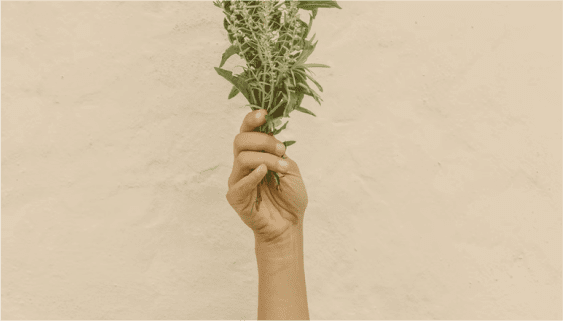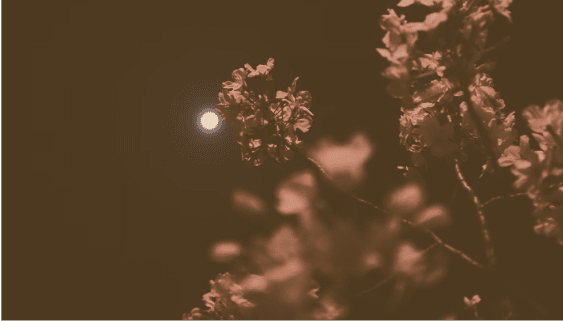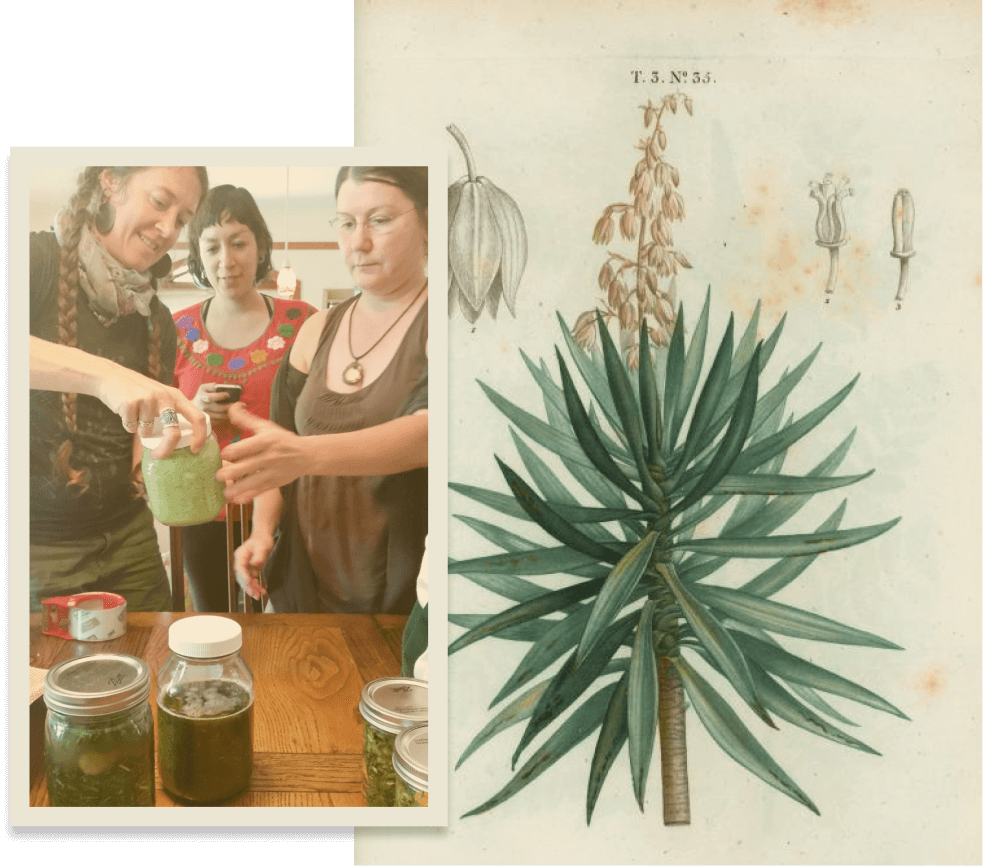Juniper’s official Latin name is Juniperus. In Central Texas, this plant is commonly called Cedar. The trees in the Northwest and Northeastern U.S. called cedar are not the same genus.
The name juniperus is somewhat ambiguous as far as meaning but it is thought that it may mean evergreen shrub or reed. It is a gymnosperm (cone bearing) plant in the Cupressaceae Family.
Juniper is an evergreen shrubby tree growing all over Central Texas. It is considered a weed by many and there is some controversy as to whether it is native. It has very fragrant foliage, wood, and berries. There are both male and female plants. The males produce the pollen that people consider responsible for Cedar fever during the winter in Central Texas. Berries can be found throughout the year, though the large harvests of ripe berries are in early spring.
Juniper grows wild all over Central Texas, especially along water ways. It reproduces easily and is very thirsty and can really affect water levels in small creeks and streams.
I harvest Juniper leaf all year long and I harvest the berries as they begin to fall to the ground in March
Juniper berries have long been used as a spice in a wide variety of culinary dishes and best known for the primary flavoring in gin (and responsible for gin’s name). Juniper berry sauce is often a popular flavoring choice for quail, pheasant, veal, rabbit, venison and other meat dishes. It has a history of use also to smudge or clear areas by burning the leaves like sage. Some tribes used it as an arthritis remedy and to help bring on menstruation. I use Juniper topically as a circulatory stimulant for aches and pains. Internally it must be used with caution, as it can be too strong for some clients but for others can be a potent remedy for urinary tract and kidney infections. If you eat a berry, or a few drops of berry tincture is taken about 15 min before a meal it can help folks who do not digest protein well and tend to feel bloated and gassyJuniper wood is used commercially to make juniper essential oil. The leaves can be made into an infused oil or put into the bathtub to help stimulate circulation. It will redden the skin, so always test on a patch of skin if you are sensitive. The leaves can also be dried and bundles and used as incense or smudge sticks to clear spaces. The berries can be made into a tea or tincture. Most recently I used juniper berry tincture in a formula to treat my dog’s uti. Within two doses(1 dropperful per 50 pounds of weight), her spirits had lifted. She no longer had to pee every 2 hours and the redness around her urethra dissipated.
